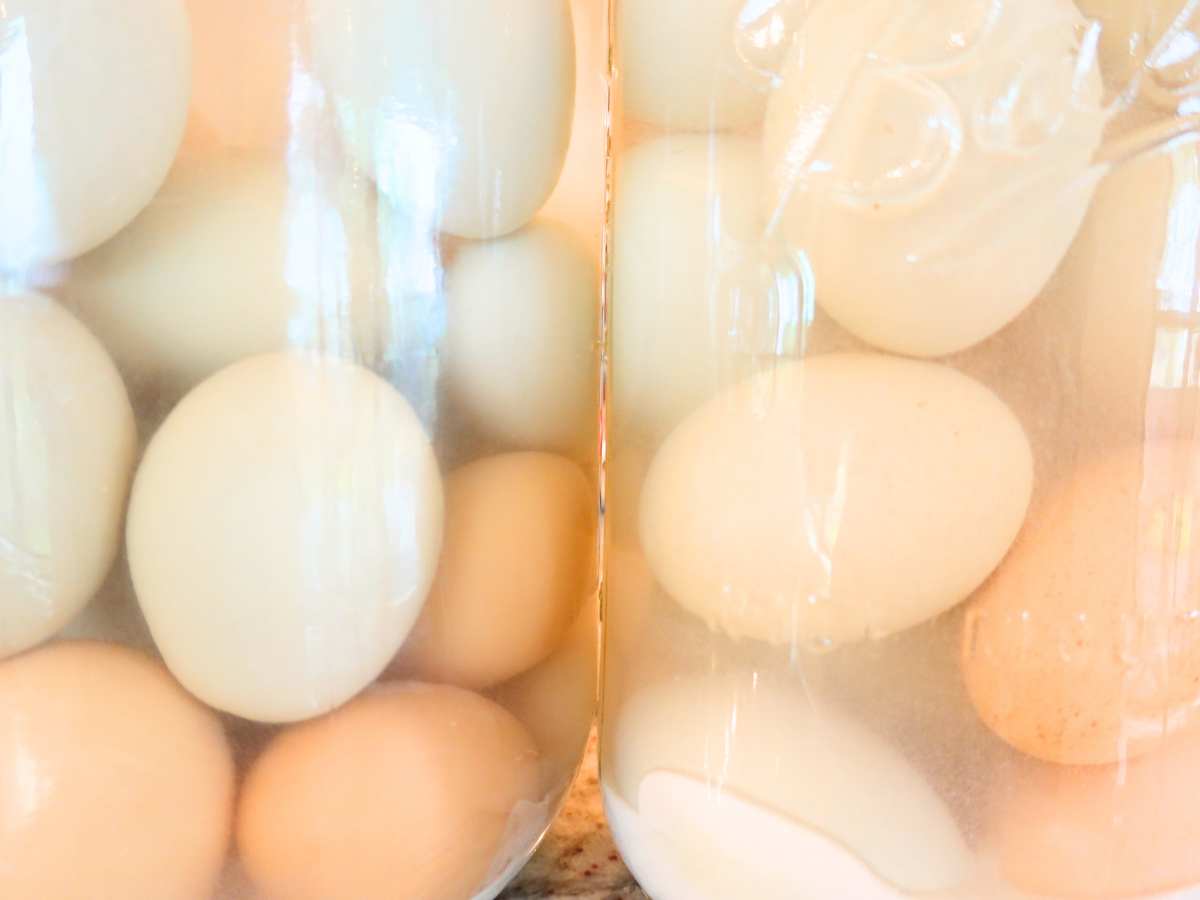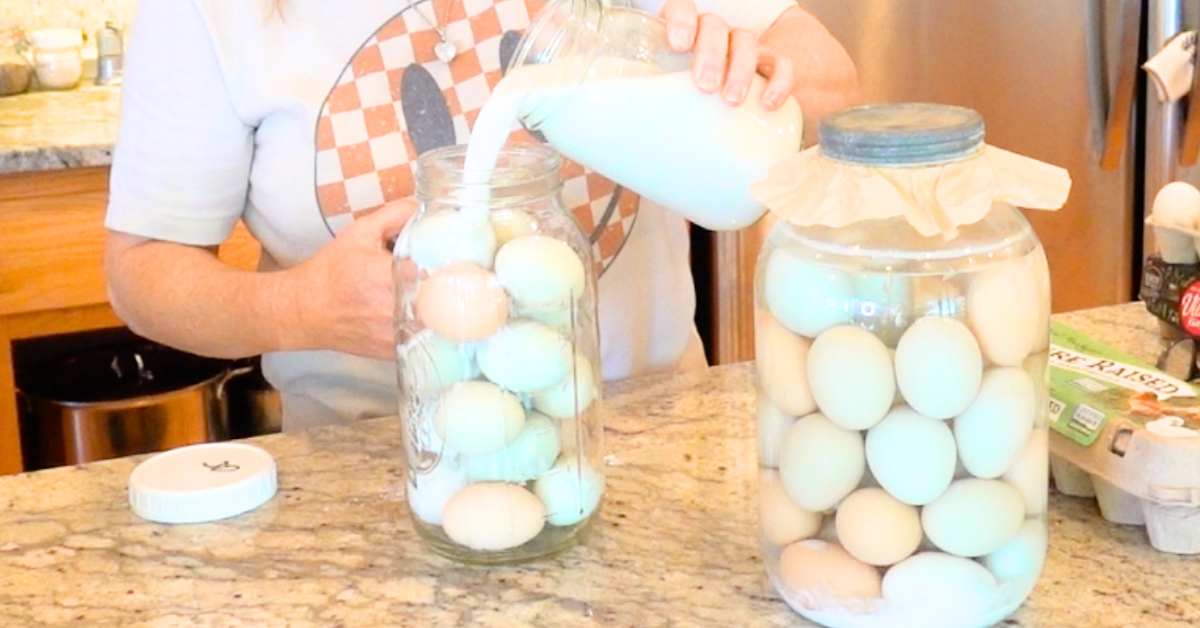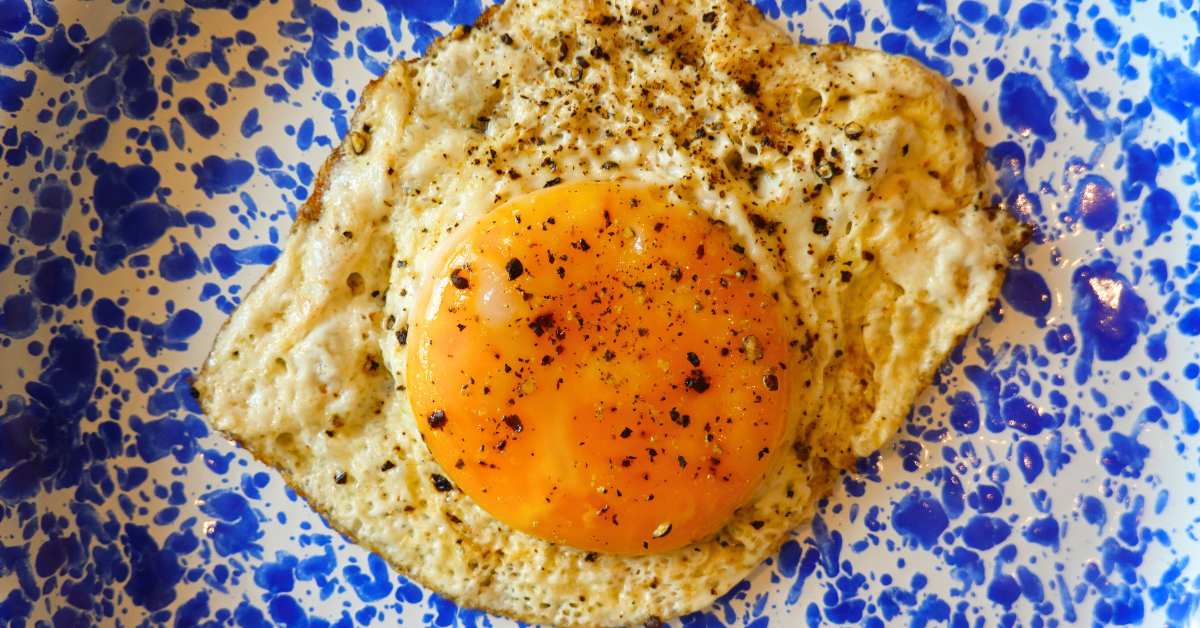Water Glassing Eggs is an easy way to preserve eggs for winter storage without electricity. Great for food security! A simple process (no scale) that anyone can do and very helpful to keep eggs from taking up precious refrigerator space.

Jars of Water Glassed Eggs that will provide our family with eggs throughout the Winter season
Water Glassing Eggs is a process of submerging eggs in a lime and water solution that acts as a preservative for up to a year here in Texas. We keep chickens so eggs are plentiful most of the year. But right around October when the days grow shorter the chickens lay fewer eggs, so it is time to preserve eggs. We don’t need to preserve eggs for a year, just to bridge the gap between winter and spring.
Please read this article in Backyard Poultry for detailed expert advice on Water Glassing Eggs.
How did the pioneers preserve eggs?
They used techniques such as water glassing and burying eggs in wood ash. In the Texas Hill Country there is an abundance of limestone. Fire was used for cooking and to provide warmth, so wood ashes were always available. Most pioneers kept chickens so they needed to preserve eggs Winter-Spring which is about 4 months so they didn’t need egg preservation to last a whole year.
What kind of lime is used to water glass eggs
Pickling lime (Calcium hydroxide) is readily available and it is best to use food grade lime. Back in the old days they sourced their own lime but today it is easy for us to buy it.
What is the water/lime solution ratio when water glassing eggs?
Per one quart of filtered, un-chlorinated or distilled water add 1 ounces or 3 tablespoons of pickling lime.
Do you use clean eggs?
Yes, make sure not to wash them because you will wash off the “bloom” which is the protective coating on the eggs that preserves them naturally.
Can you use eggs that have been refrigerated?
It is best to use fresh eggs that are less than one week old that have been kept at room temperature.
List of what you will need to water glass eggs
- Fresh (less than one week old), clean, unwashed, unrefrigerated eggs-the eggs need to have thick strong shells so they won’t break under pressure when packed in the jar. *Not a good idea to use eggs from the grocery store, you have no idea how old they are plus the “bloom” will have been washed off.
- Jar for water glassing eggs
- Quart jar for mixing water/lime solution
- Lime- Pickling lime such as the brand Mrs. Wages or Azure Standard carries Calcium Hydroxide. Both are food safe.
- Tablespoon
- Filtered or Distilled Water

Making the water/lime solution in a quart jar is a helpful tip when water glassing eggs
Directions
- Carefully place eggs in a jar.
- Fill one quart jar with filtered or distilled water
- Add 3 tablespoons of Lime to jar then shake to mix solution.
- Pour water/lime solution over jar of eggs making sure all the eggs are submerged in the solution.
- Place a lid on jar. Write the number of eggs in the jar and the date.
- Store in a cool place. The only place I have to store water glassed eggs is in a closet. In the Texas heat it is difficult to maintain a cool storage area.
- I have successfully stored water glassed eggs in our hot climate for up to a year.

A one year old egg preserved by water glassing. Ready to eat!
When ready to use the eggs what should you do
Wash the eggs to remove the lime solution then dry them. Break the egg in a bowl first before adding to a recipe or cooking. The egg will have a rotten smell if it is not good.
How do you know if a water glassed egg is bad?
Do the float test by dropping an egg in water.
If it floats then it is NOT GOOD.
If it sinks and stays at the bottom then it IS GOOD.
Eggs that are bad will smell bad.







